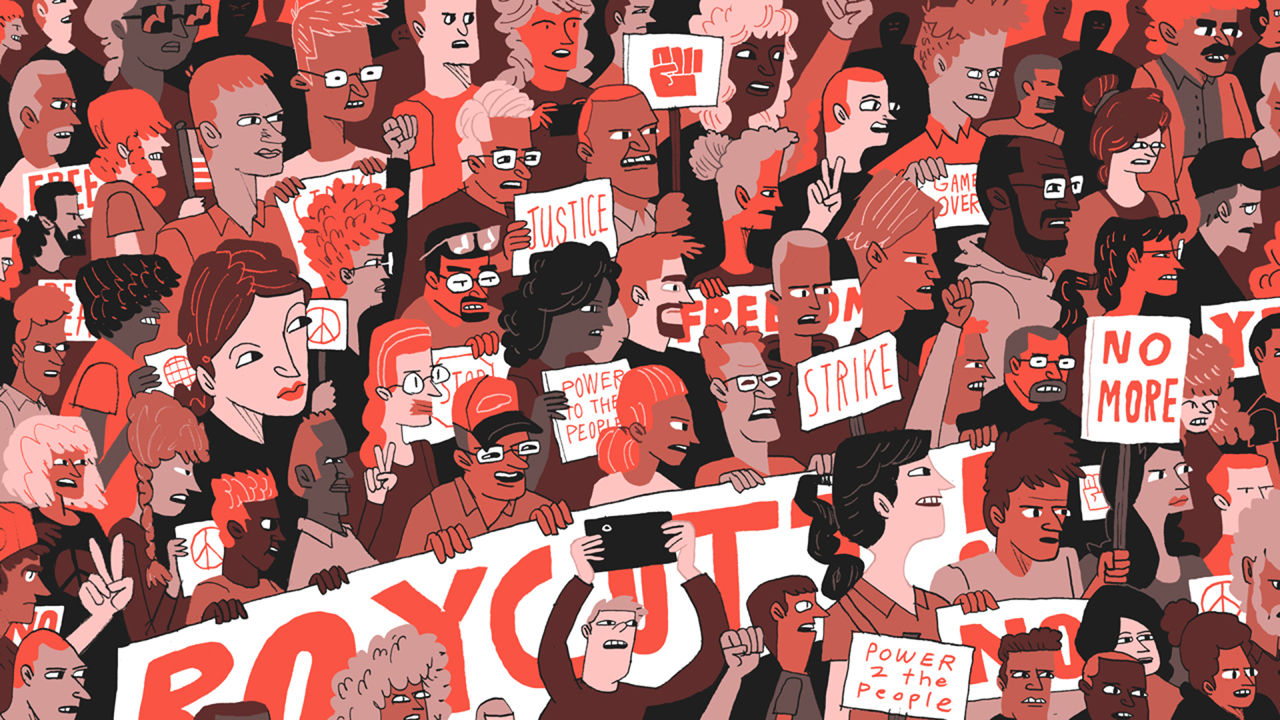
The Maggie Phair Institute in the Philippines

Last month, I had the tremendous privilege to join my wife on a trip to the Philippines to visit family members living in Cebu City, located in the Central Visayas region of the archipelago. It wouldn’t be an overstatement to say it changed my life. While much has been written about the colonial history of the Philippines and the tremendous economic exploitation that takes place there, what often seems to be missing from many accounts of the country is the incredible resiliency, warmth, generosity, and kindness of its people. I was in tears on more than one occasion.
Undoubtedly, colonial oppression still looms large. Why wouldn’t it? First colonized by Spain in 1565, and then by the United States following the Spanish-American War, it’s literally been centuries since Filipinos have a lived experience free of colonial rule. Today, it’s hard to turn a corner in a major economic hub like Cebu City, the most heavily-populated city in the Visayas, without seeing evidence of foreign investment. 
The heat is intense. The smell of fuel throughout the barangays (neighborhoods) is oppressive. The streets are packed with a density we don’t see in the United States. And at every turn, there is joy, laughter, smiles, hugs, and a kind of community strength that was completely foreign to me. It’s hard to put this into words. 
This was the first time I had met my wife’s family. From the first second, I was treated with tremendous love and generosity. It was difficult to make a move without an offering of hospitality. My initial feeling was that my wife’s family was just incredibly unique (they are), but I soon learned that this is a way of life in the Philippines. 
There is something profound to be learned from the world’s oppressed, and it’s likely not going to be learned in a book. It’s a connection. It’s a willingness to see humanity as family. And it’s an ability to love that family – deeply.
Mimi Soltysik
Educator, Maggie Phair Institute

An Economic Bill of Rights for the People
Under a capitalist economic system, profit reigns supreme. The economic well-being of the people necessarily plays second fiddle to profit. Progressive reforms to the system – reforms that will deliver much needed short-term relief and widen the scope of the country’s social safety net – are consistently under attack by capital and are always subject to repeal or the potential of a diminished effect. For example, we might see a minimum wage increase implemented at a time where health care and cost-of-living costs outpace the wage increase.
Capitalism can appear to be so firmly entrenched that the thought of dismantling it to replace it with something better, something that can deliver economic stability and a life of dignity, can be so overwhelming that it becomes an abstraction. Undoubtedly, dismantling a system this powerful would be an extraordinarily profound challenge. But, as author Ursula K. Le Guin once noted, “We live in capitalism. Its power seems inescapable. So did the divine right of kings. Any human power can be resisted and changed by human beings.” In a hypothetical scenario, if capitalism were to be replaced, what would take its place? The Maggie Phair Institute would suggest the reader consider socialism: an economic system where the workers own and control production, where democracy is a core value, and where basic needs are met across the board. What would socialism deliver? What kinds of economic rights would the people have in a socialist society?
The first thing we’d look at is a living wage, which isn’t to be confused with a minimum wage. A living wage is the minimum amount needed in any given area to guarantee that an individual’s basic needs are met. From MIT’s Living Wage Calculator, created by Dr. K. Glasmeier, a living wage is “a market-based approach that draws upon geographically specific expenditure data related to a family’s likely minimum food, childcare, health insurance, housing, transportation, and other basic necessities (e.g. clothing, personal care items, etc.) costs. “ If we take the city of Los Angeles as an example, the Living Wage Calculator shows us that a single parent with one child would need to earn a minimum of $30.27 to meet their most basic needs. Here we can see how a progressive reform like a $15/hour minimum wage fall far short of providing economic health and stability. With a $15/hour minimum wage, that single parent with one child in Los Angeles falls over $15 in the negative for every hour worked. In a socialist society where the workers owned and controlled production, that living wage would be guaranteed as a right.
Next we’ll look at health care. Health care in the United States is the world’s most expensive, yet it ranks far behind countries with either a single-payer system or a socialized system in terms of quality of care. In fact, health care is the leading cause of bankruptcy in this country. The extent of the problem is widespread. Earlier this year, CNBC reported that “A new study from academic researchers found that 66.5 percent of all bankruptcies were tied to medical issues —either because of high costs for care or time out of work. An estimated 530,000 families turn to bankruptcy each year because of medical issues and bills, the research found.” Adding insult to injury, of those bankruptcies, a majority of those filed had medical insurance. In a socialist economic system, the people would have access to doctors of their choice with no out-of-pocket expense. Everyone would be covered.
And what about housing? In many areas of the country, rent prices are skyrocketing. According to a 2017 Money.com report, “Thanks to inflation, we can expect rent and other expenses to rise over the years. But rental rate increases in the U.S. have been outpacing inflation for decades.” Coupled with, and as a result of skyrocketing rents, the number of unhoused is also skyrocketing. Huffpost reports that the city of Los Angeles saw a 12 percent increase in the number of unhoused from 2018 to 2019, with the number reaching a staggering 59,000. The message the capitalist system sends to the people: If you can’t afford housing, get ready for a life on the streets. Under a socialist economic system, housing would either be low-cost or subsidized, with assurances given that no one would be left without a home.
Undoubtedly, some will ask how all of the above would be paid for. It’s a reasonable question, but the answers aren’t terribly complex. We can start by taking a look at military spending. Each year, the War Resisters League publishes a pie chart detailing specifically where our tax dollars are spent. For fiscal year 2019, the WRL reported that 47% of our income taxes are spent on the military, with 20% spent on past military expenses (644 billion dollars) and 27% spent on current military expenditures (857 billion dollars). You might ask why we spend so much money on the military. In a capitalist system, the military paves the way for acquisition to resources, which in turn delivers profit. Very little of the military’s function serves to defend the country from any sort of foreign threat. We can also look at our tax code. The U.S. tax code is regressive, meaning that, the less you earn, the heavier the tax burden. A shift to a steeply-graduated income tax would go a long way toward providing the necessary funds to deliver our proposed economic bill of rights. Let’s also look at corporate taxes. The Washington Post reported earlier this year that “Amazon, the e-commerce giant helmed by the world’s richest man, paid no federal taxes on profit of $11.2 billion last year, according to an analysis of the company’s corporate filings by the Institute for Taxation and Economic Policy (ITEP), a progressive think tank.” Not only did Amazon not pay a dime in federal taxes, they actually received a federal tax rebate of 129 million dollars. Again, a massive restructuring of the U.S. tax code is in order.
Delivering a humane and just economic bill of rights for the people is not a matter of resources. Delivering a humane and just economic bill of rights for the people is a matter of priorities and will. Asking capitalism to put people before profit is an exercise in futility. That’s not how the system is designed to operate. We’ve been down this road for decades and decades, and the results are getting worse. The time to transition to an economic system – socialist – that places humanity over profit has come. Do we have the will?
Sources:
http://livingwage.mit.edu/
https://www.cnbc.com/2019/02/11/this-is-the-real-reason-most-americans-file-for-bankruptcy.html
http://money.com/money/4830674/rent-afford-increase-prices/
https://www.huffpost.com/entry/homeless-increase-los-angeles-california_n_5cf6c5fae4b036433476faae
https://www.warresisters.org/store/where-your-income-tax-money-really-goes-fy2019
https://www.washingtonpost.com/us-policy/2019/02/16/amazon-paid-no-federal-taxes-billion-profits-last-year/

Climate Change: Where We Are At in 2019
To say that climate change now poses an existential threat is no understatement. It’s not hyperbole and it’s not alarmist. Why? While there is some complexity in the details, it’s rather simple in principle. When an ecosystem is disrupted due to climate change, it triggers the disruptions of subsequent ecosystems. We can perhaps think of the sequence like an extensive set of dominos, with each falling domino representing an ecosystem. Within each ecosystem are elements absolutely essential to supporting life.
It is likely that you’ve heard some mention about the relationship between capitalism and climate change. More and more evidence has revealed that the planet’s ability to host life is being directly threatened by capitalism. We are now even hearing words like “extinction”. That may sound unthinkable. Unfortunately, it’s true. Capitalism, as an economic system, must grow in order to sustain itself. This isn’t to be confused with population growth, but refers to economic growth. The means for that economic growth are carbon intensive, whether it be through the extraction of carbon-emitting fossil fuels or through the transportation of goods and services. Today, the planet’s carrying capacity simply cannot withstand that continued growth. This is no longer a case where mitigated growth is enough to save the day. The science now supports the conclusion that the planet can’t handle any carbon-intensive growth. As such, it means that we’d need to re-think how we approach our relationship to production, our relationship to the land, our relationship to food, on and on.
For starters, we know that the United States military is the world’s leading polluter. In 2017, EcoWatch issued a report detailing the myriad ways in which the U.S. military contributes to ecological destruction. According to the report, “U.S. military bases, both domestic and foreign, consistently rank among some of the most polluted places in the world, as perchlorate and other components of jet and rocket fuel contaminate sources of drinking water, aquifers and soil.” Furthermore, according to Ecowach, “One of the most recent testaments to the U.S. military’s horrendous environmental record is Iraq. U.S. military action there has resulted in the desertification of 90 percent of Iraqi territory, crippling the country’s agricultural industry and forcing it to import more than 80 percent of its food.” In this instance, we can see that, in addition to the destruction to the land of the invaded country, there is also the transport (carbon-emitting/fossil fuel-intensive) component, as Iraq must now import foodstuffs. As both the Democratic and Republican parties have provided an incredible level of support to the military, a sense of despair might be a rather reasonable response. If elected officials aren’t willing to take a stand to an outfit so heavily-responsible for our planet’s ecological destruction, who can? The answer is both simple and complex: the people can because they must.
As was mentioned before, capitalism must grow in order to sustain itself as a system. Professor David Klein states in “The Limits of Green Energy Under Capitalism” that “Capitalism requires perpetual economic growth in order to avoid economic crises such as the Great Depression” and “More specifically, in order to stave off mass unemployment and economic misery, capitalism requires increasing commodity production, escalating resource extraction, increasing trash and toxic dumping, and ever increasing energy production. Capitalism, by its very nature, must expand unendingly and it has already surpassed the limits of sustainable growth in the sense that global consumption now exceeds the planet’s bio-capacity to regenerate the resources consumed.” If capitalism is incompatible with ecological sustainability, where do we go? The answer, according to Klein and an increasing number of scholars and scientists, is socialism.
Let’s start with Klein’s account of what might be involved with dismantling capitalism. From Klein:
“As Richard Smith points out in Green Capitalism: The God that Failed, the scale of change needed to achieve a sustainable civilization is staggering. The rapid reduction of greenhouse gas emissions together with resource conservation requires that we radically reduce or close down large numbers of power plants, mines, factories, mills, processing and other industries around the world. It means drastically cutting back or closing down not only fossil fuel companies, but the industries that depend on them, including automobile, aircraft, airline, shipping, petrochemical, construction, agribusiness, lumber, pulp and paper, and wood product companies, industrial fishing operations, factory farming, junk food production, private water companies, packaging and plastic, disposable products of all sorts, and above all, the war industries. The Pentagon is the single largest institutional user of petroleum products and energy.”
You might ask how it is we’d realize what’s described above. Inherent to socialism is the democratic process. Collectively, the people would need to dismantle and replace. This isn’t meant to imply that polluting industries would necessarily give up their power to pollute and profit from that pollution. Not by any stretch. However, we’ve also yet to see a mobilization at the level that might be necessary to force such a transition. Planning would need to be developed by the people, and it would need to be done in a way that’s in accordance/harmony with ecological sustainability. Permaculture, which considers our relationship to food and land, might be a key consideration. How we produce goods would be a consideration. How we transport goods would be a consideration. Undoubtedly, the cultural shift would be seismic. It may be uncomfortable. But what we’re trying to ensure is survival, so discomfort and inconvenience would need to be seen in that context.
So, the bottom line is this: We are at a critical moment in human history. Life under our current economic system – capitalism – has reached a point where we have a choice that carries incredible consequences. We can choose to work together to dismantle capitalism and the ecological destruction it has delivered, and in doing so, guarantee a future for life on the planet. We can transition to an economic model – socialism – that places ecological harmony and life as priority. Or, we can continue our current trajectory and endure what will be a painful process of gradual extinction. Water will become increasingly scarce. Food will become increasingly scarce. Battles over food and water will intensify. Logically, this sounds like an easy choice. It’s a choice we will have to make.
Sources:
https://www.ecowatch.com/military-largest-polluter-2408760609.html
https://truthout.org/articles/the-limits-of-green-energy-under-capitalism/

Disarm the Police: An Email Campaign
According to The Root, “Police officers killed 1,129 people in 2017.
More people died from police violence in 2017 than the total number of U.S. soldiers killed in action around the globe (21). More people died at the hands of police in 2017 than the number of black people who were lynched in the worst year of Jim Crow (161 in 1892). Cops killed more Americans in 2017 than terrorists did (four). They killed more citizens than airplanes (13 deaths worldwide), mass shooters (428 deaths) and Chicago’s “top gang thugs” (675 Chicago homicides).
Yet only 12 officers were charged with a crime related to a shooting death.” https://www.theroot.com/heres-how-many-people-police-killed-in-2017-1821706614
This must stop. On April 27th, we are asking you to email your mayor, your city council representatives, your state representatives, anyone and everyone, to let them know that you want lethal weapons removed from the law enforcement arsenal. As Colin Kaepernick stated, these killings are “lawful lynchings”. No more.
The Facebook event page can be found at https://www.facebook.com/events/1719229311490828/ Please invite your friends to join the campaign. Kindly post your progress in the comments section of the event.
Thank you!

Digital Security is Crucial
Equality Labs has provided an anti-doxxing guide that we’d highly recommend organizers and activists review. For information about the guide, please visit https://medium.com/@EqualityLabs/anti-doxing-guide-for-activists-facing-attacks-from-the-alt-right-ec6c290f543c
Please be safe,
The Maggie Phair Institute
